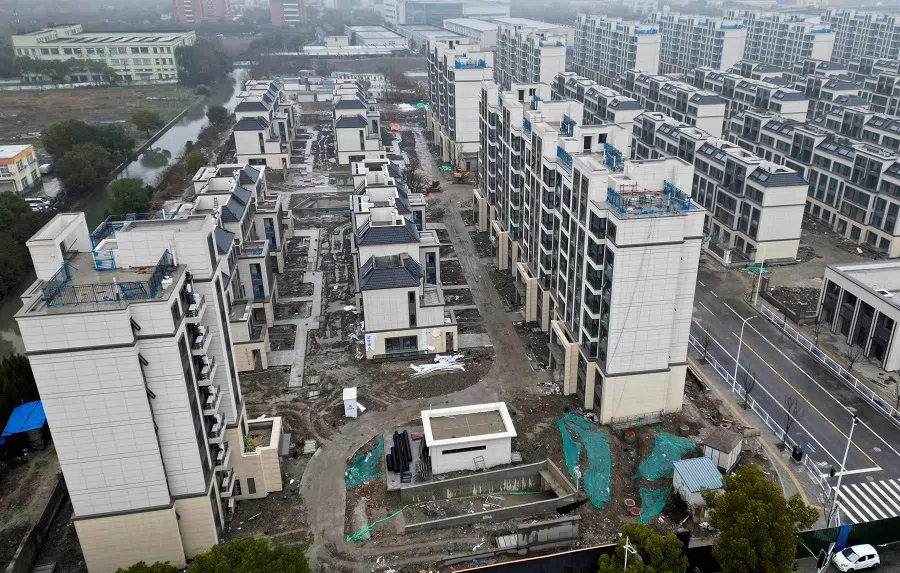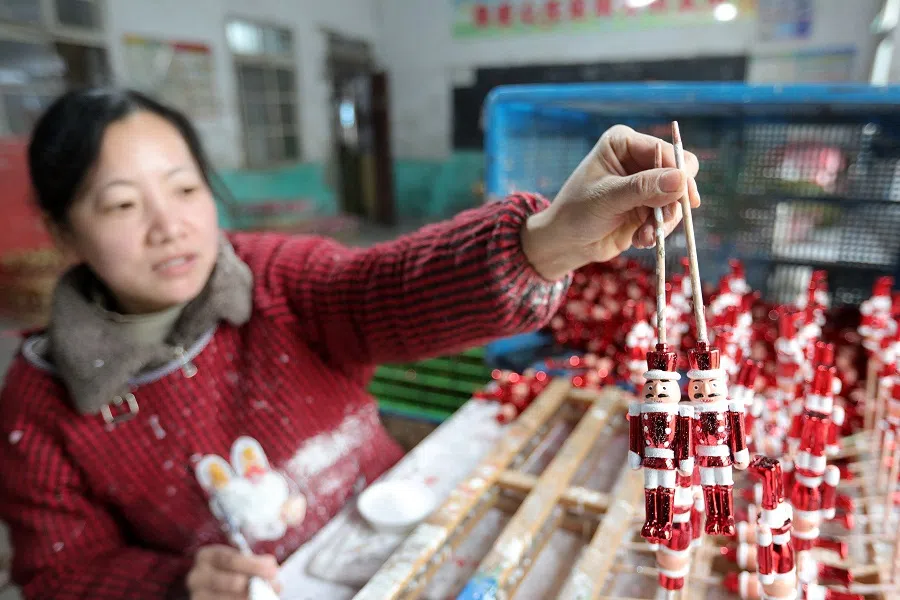Top economist Yang Yao: Can Beijing save China’s economy from real estate and debt?
China’s top economist, Yang Yao, asserts that to rapidly boost domestic demand, Chinese authorities must address the two major issues at hand: the decline of the real estate sector and local government fiscal distress.

The recently concluded Central Economic Work Conference acknowledged that the Chinese economy faces serious difficulties and challenges. The conference pledged more proactive fiscal policy and more accommodating monetary policy for 2025. These are encouraging signs. The Chinese authorities have sensed the urgency in dealing with the problems that have long been regarded as critical for China’s economy to get restarted.
Unlike what some China watchers believe, China’s economy still has sufficient fuel in its tank. Exports are expected to grow more than 6% for 2024, and surplus in goods trade is approaching US$1 trillion. Technologies are moving fast and Chinese companies are gaining market share in both the domestic and international markets. One telling example is the automobile industry. China is expected to sell more than 30 million units of automobiles; domestic brands will account for more than 60% and EVs will account for more than 40%.
Tricky task of boosting domestic demand
The urgent problem is how to boost domestic demand. Deflationary pressures are piling up and could potentially push China’s economy onto a trajectory that is similar to Japan’s in the 1990s.
In line with conventional wisdom, boosting consumption was set by the economic work conference as the first priority for 2025’s policy target. There is no doubt that China needs to increase the share of consumption in its output. But it is not something that can be achieved in the short term because consumption is a slow-moving variable. Currently, income growth is slowing down and people are uncertain about their future. As a result, it is unwise to bet on consumption growth alone to boost domestic demand.
The economic work conference also put a heavy weight on expansionary fiscal policy and pledged a larger central government deficit and more local government bonds to carry out new infrastructural projects as well as to increase social security benefits for low-income households. While more transfers to low-income households will boost demand, it is doubtful whether local governments still have the appetite for more infrastructural investment.
To boost domestic demand in a short period of time, the Chinese authorities cannot afford to ignore the two elephants in the room, i.e., the decline of the real estate sector and local government fiscal distress.

For one thing, there are not many good infrastructural projects left in many cities. Moreover, local governments have become very cautious about bearing new debt after the central government began a massive debt reduction programme in early 2023. The programme asks local governments to repay their commercial debts.
While 12 heavily-indebted provinces are entitled to issue long-term government bonds to swap their commercial debts, other provinces are required to directly pay their commercial debts. Either way, local government spending is maxed out; it is hard to imagine that they would like to take up more debt.
To boost domestic demand in a short period of time, the Chinese authorities cannot afford to ignore the two elephants in the room, i.e., the decline of the real estate sector and local government fiscal distress.
The economic work conference set stabilising the real estate sector as one of the policy goals for 2025. Previous policy already hinted at a solution --- local governments can borrow concession loans from banks and directly purchase excessive housing stocks. However, under pressure to clear up their debts, local governments have very weak incentive to do that.
The central government has to step in to buy redundant homes on the market. Its actions in the stock market have set a good example.
State buying key to housing recovery
The central government has to step in to buy redundant homes on the market. Its actions in the stock market have set a good example. Since the end of September 2024, the central authorities have poured in money to buy stock shares; as a result, stock prices jumped up and have stabilised at reasonable levels ever since.
The housing market is trapped by downward expectations; outside forces are needed to break this trap. Direct central government purchase will be seen by the market as a confidence vote cast by the central government on China’s economy at large and on the housing market in particular.
Local governments are in big financial trouble. Over the last several years, tax cuts have substantially reduced government tax revenue. The decline of the real estate sector in the last three years has caused a sharp drop of revenue from land sales — from 8.7 trillion RMB in 2021 to 3 trillion RMB in 2024. In addition, local governments spent too much on preventative measures during Covid-19.

As a result, local governments have been running on large fiscal deficits over the last two years. To fill the gap, local governments are vehemently expanding the scope of their non-tax income, much of which comes from fines on enterprises and individual businesspeople.
Fiscal distress grips China’s local governments
Thus comes the greatest paradox of China’s macroeconomic policy of today: local government spending is contracting while the central government is trying to implement a more expansionary fiscal policy.
The consequences of this paradox are severe. First, domestic demand is dragged down because local government spending accounts for 30% of China’s domestic demand. Second, fiscal distress has led local governments to run wage and business arrears, which further weakens domestic demand. Third, local governments’ arbitrary fines have damaged entrepreneurs’ confidence, which is badly needed today.
Local governments are caught by unprecedented fiscal distress. Bailing out local governments is not to pardon their misconduct, but to boost domestic demand and market confidence.
Despite the concerns of moral hazard, bailing out local governments should be the first priority of any fiscal stimulus because the above dire consequences will greatly destabilise China’s economy and society if no decisive action is taken. The debt-swap plan of 10 trillion RMB announced on 8 November 2024 may be able to take care of local governments’ short-term insolvency problem, but will aggravate their fiscal distress from the very beginning.
Debt swaps do not eliminate the implicit debts that local governments have provided guarantees for, but only move them from off-balance sheets to local governments’ balance sheets. When they sit on off-balance sheets, local governments can roll them over by borrowing new debt, whereas local governments are mandated to pay them by fiscal revenue once they are moved to local governments’ balance sheets.
A more sensible approach is for the central government to issue a special government bond and use the money raised by the bond to cover local governments’ fiscal deficit. Local governments are caught by unprecedented fiscal distress. Bailing out local governments is not to pardon their misconduct, but to boost domestic demand and market confidence.
Correcting local governments’ behaviour is a long-term task and needs substantial institutional reforms. It is not the first priority at the moment; jump-starting domestic demand is. The economic work conference has set the direction; now it is the relevant central authorities’ turn to lay out concrete action plans.





